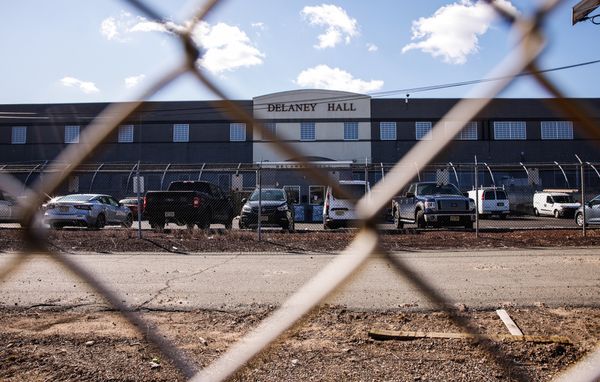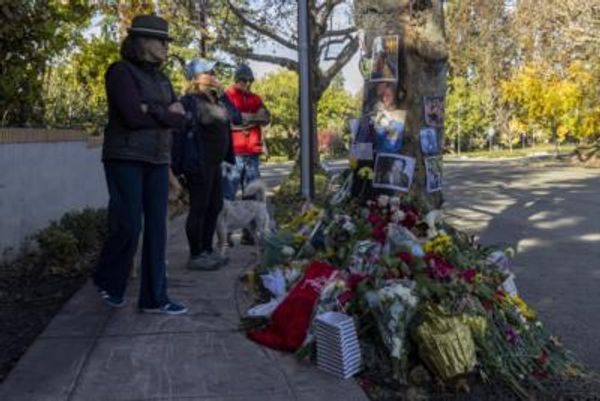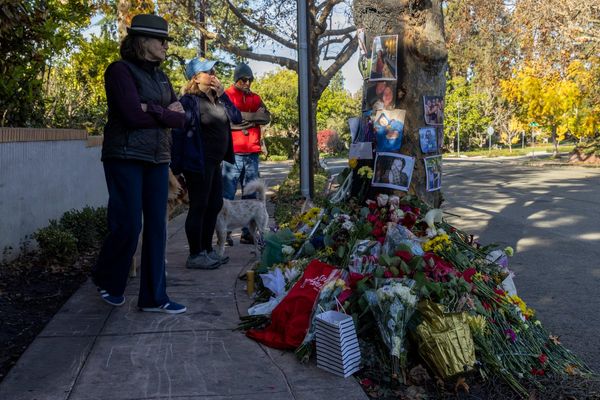Papua New Guinea police say outdated drug laws have left them unable to lay drug charges against the Australian manager of a Port Moresby hotel where an alleged clandestine meth lab and illegal firearms were discovered.
Sanctuary Hotel Resort and Spa group operations manager Jamie Pang, 43, was arrested after a raid at the hotel on November 16 but he has not been charged with any drug-related offences.
There are no laws in PNG that prohibit the production, sale or use of methamphetamine.
The case has added fuel to calls to amend Papua New Guinea's Dangerous Drugs Act 1954.
Pang has pleaded guilty to 11 firearms charges and will face court on Friday, according to local media.
The Royal Papua New Guinea Constabulary (RPNGC) worked alongside PNG Customs Services, Australian Federal Police, and the United States Department of Homeland Security on the operation.
RPNGC Assistant Commissioner Donald Yamasombi, who headed the inter-agency investigation team, said the current laws made his job difficult.
"It's just waste of time and resources, really, and we get no justice done to it."
Assistant Commissioner Yamasombi said the Dangerous Drugs Act 1954 needed to be overhauled to reflect the current threat that drugs like methamphetamine posed to PNG.
Drug laws shake-up
PNG's Police Minister William Onglo said he supported amendments to the old law.
In a statement, he said the government would push for the legislation to be "reviewed, amended and scheduled for presentation in parliament in the near future".
There have been a string of drug busts in the country in recent years, including in July and August 2020 when more than 500 kilograms of cocaine was seized and an Australian pilot was arrested after a plane believed to be linked to drug trafficking crashed in Port Moresby.
In October, the Post Courier reported on a 31-year-old Cairns man who was charged with smuggling methamphetamine into PNG.
A spokesperson for the Department of Foreign Affairs and Trade said in a statement they were "providing consular assistance to two Australian citizens detained in Papua New Guinea", but would not provide further comments due to their privacy obligations.
While methamphetamine trafficking is not illegal in PNG, smuggling undeclared goods is an offence under PNG's Customs Act.
Australia Pacific Security College policy fellow Jose Sousa-Santos said changes to drug laws needed to be two-pronged and address the issue of corruption.
"You can't address the issue of trans-national crime and syndicates and the risk of trans-national crime without addressing the linkages to corruption that come along with that," Mr Sousa-Santos said.
"That could be corruption in not just agencies but also in government, and that in itself is a cancer which needs to be addressed."
He said there were avenues PNG could take to address the methamphetamine trafficking problem, including requesting assistance from the Pacific Islands Forum, as was done by Tonga.
"In 2019, Tonga requested for the Pacific Islands Forum to develop a five-year national policy on illicit drugs," Mr Sousa-Santos said.
"This led to Tonga pushing through a tough new drug law this year.
"And that in itself has given the police and the judiciary the tools to be able to now confront the methamphetamine epidemic, and also the trafficking of drugs that is affecting the country."
On Tuesday, PNG's Minister for Justice Bryan Kramer said a new Controlled Substance Bill was being finalised for endorsement by the National Executive Council, for tabling in parliament, the Post Courier reported.
'They should be deported'
Community leader Susan Setae said PNG was vulnerable to the influence of dangerous drugs.
She said she was concerned about the impact on younger generations.
"If it goes out into the rural communities, we are done," Ms Setae said.
"But what can we do when the children are out on the streets? With their peer groups and peer pressures? How can we help them to see what is right and what is wrong?
"And therefore, government has to take very, very strong issue."
Ms Setae said foreign nationals found to be importing or producing drugs in the country should be deported.
She said the local community had to rise up and speak out against the use of dangerous drugs.







